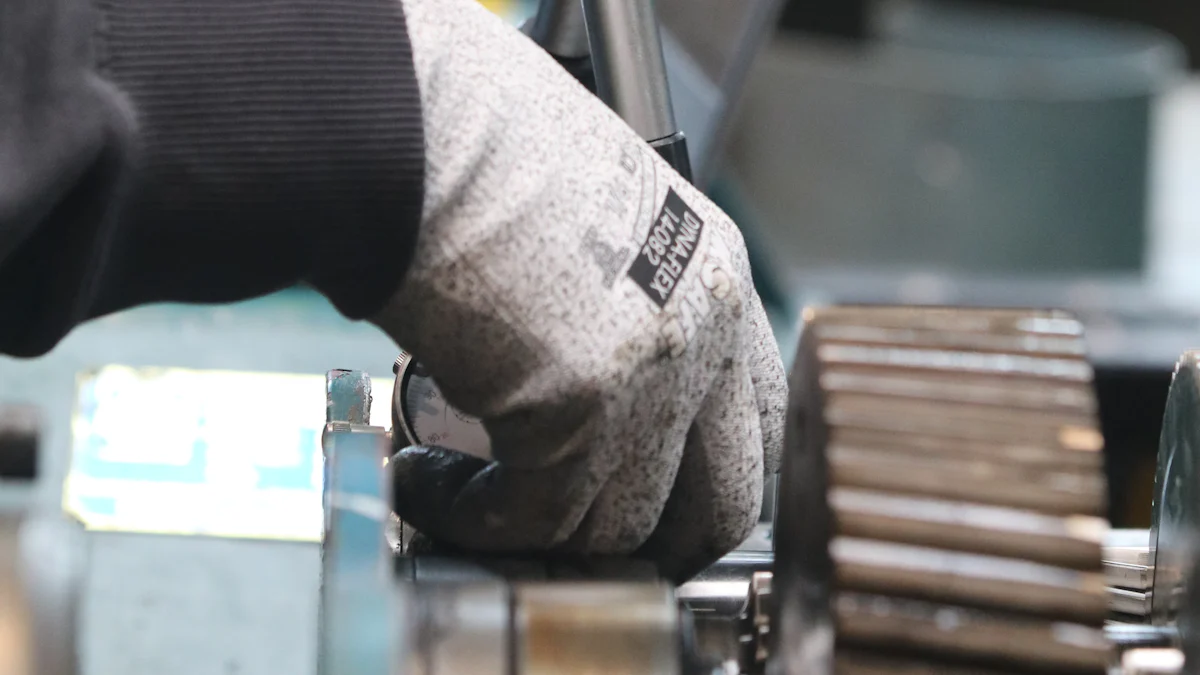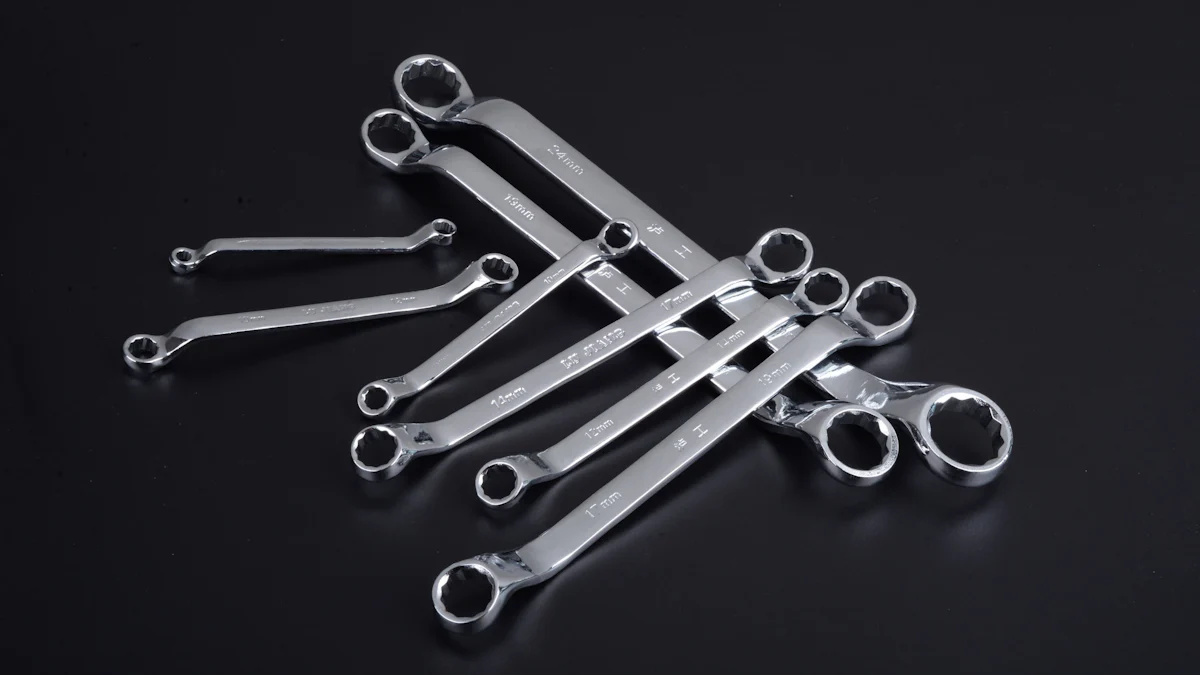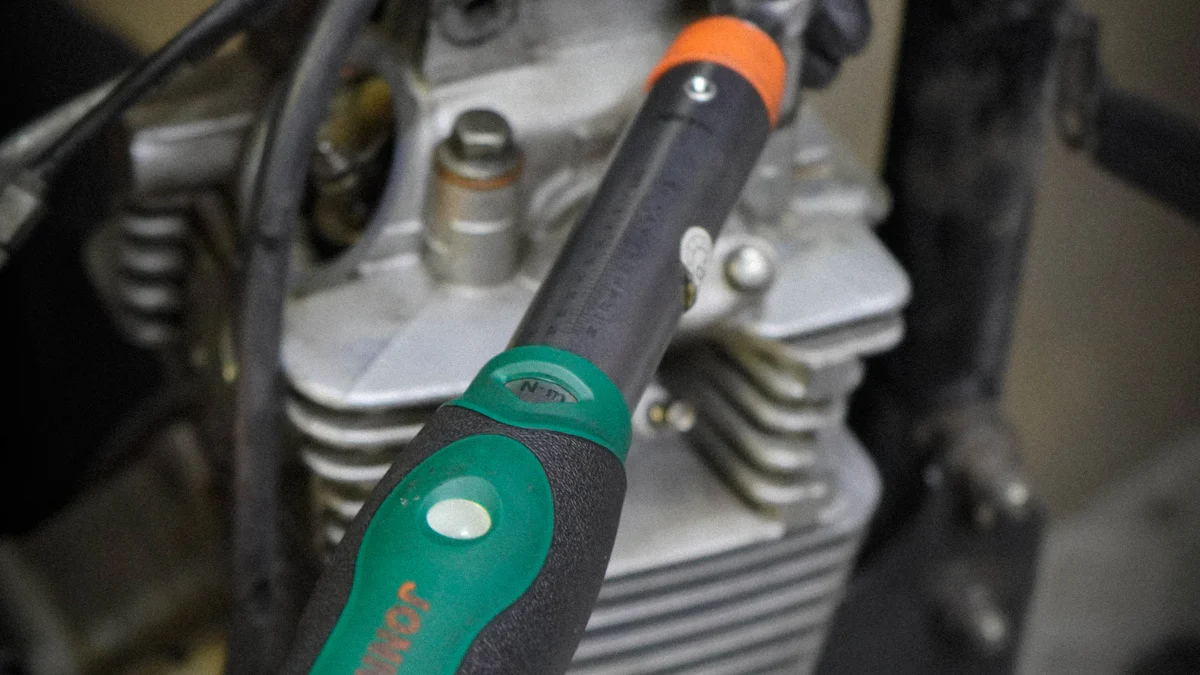
Using the right torque wrench ensures precise torque applications. A 1/2 torque wrench is essential for larger nuts and bolts, such as those found in suspension and engine mounts. Choosing the correct one matters because it guarantees accuracy and reliability. Investing in a quality tool will provide consistent performance and extend the lifespan of your equipment.
Understanding Torque Wrenches

What is a Torque Wrench?
Definition and Purpose
A torque wrench is a precision tool designed to apply a specific amount of torque to a fastener, such as a nut or bolt. The primary purpose of a torque wrench is to ensure that the fastener is tightened to the correct specification, preventing over-tightening or under-tightening. This accuracy is crucial in applications where the integrity of the assembly depends on precise torque settings.
Types of Torque Wrenches
Several types of torque wrenches exist, each suited for different applications:
- Click-Type Torque Wrench: This type allows the user to set a specific torque value. When the set torque is reached, the wrench emits an audible click, indicating that the desired torque has been applied. Click-type wrenches are easy to use and offer good accuracy.
- Beam Torque Wrench: This type uses a simple mechanical design, where a beam deflects as torque is applied. The user reads the torque value from a scale. Beam wrenches are known for their durability and low maintenance requirements.
- Digital Torque Wrench: This type features an electronic display that shows the applied torque. Digital wrenches often include additional features such as memory settings and alerts for reaching the desired torque.
- Preset Torque Wrench: This type is factory-calibrated to a specific torque value. Once this value is reached, the wrench prevents any additional torque from being applied. Preset wrenches are ideal for repetitive tasks requiring consistent torque.
Why Use a 1/2 Torque Wrench?
Common Applications
A 1/2 torque wrench is commonly used for larger nuts and bolts found in various automotive and industrial applications. Typical uses include:
- Suspension components
- Engine mounts
- Transmission mounts
- Axle bolts
- Sprocket bolts
These applications require precise torque to ensure safety and performance. A 1/2 torque wrench provides the necessary leverage and torque range for these tasks.
Advantages of 1/2 Torque Wrenches
1/2 torque wrenches offer several advantages:
- Versatility: Suitable for a wide range of applications, from automotive repairs to heavy machinery maintenance.
- Torque Range: Typically covers torque values from 30 to 250 foot-pounds, making it ideal for medium to large fasteners.
- Accuracy: Ensures that fasteners are tightened to the correct specification, preventing damage and ensuring reliability.
- Durability: Built to withstand the demands of heavy-duty use, offering long-lasting performance.
Investing in a quality 1/2 torque wrench ensures accurate and reliable torque application, enhancing the safety and longevity of your equipment.
Key Features to Consider
Accuracy and Calibration
Importance of Accuracy
Accuracy in a torque wrench ensures that fasteners are tightened to the correct specification. This precision prevents issues like over-tightening or under-tightening, which can lead to equipment failure or safety hazards. Manufacturers often provide an accuracy rating, typically within plus or minus 3% or 4% of the actual torque. Ensuring that the torque value falls between 15-85% of the wrench’s range guarantees accurate results.
How to Check Calibration
Regular calibration of a torque wrench maintains its accuracy. Torque wrenches can fall up to 10% out of calibration in the first year of use. Periodic re-calibration according to ISO standards is recommended. Many manufacturers utilize torque testers to verify torque settings daily or weekly. Checking the calibration date and accuracy as per the manufacturer’s guidelines before purchasing ensures reliable performance.
Build Quality and Durability
Materials Used
The build quality of a torque wrench significantly impacts its durability. High-quality materials such as chrome-vanadium steel or stainless steel offer superior strength and resistance to wear and tear. These materials ensure that the wrench can withstand heavy-duty use without compromising its performance.
Longevity and Maintenance
Proper maintenance extends the lifespan of a torque wrench. Regular cleaning and storage in a protective case prevent damage and corrosion. Following the manufacturer’s maintenance guidelines, including periodic lubrication and calibration, ensures long-lasting performance. Investing in a torque wrench with robust build quality reduces the need for frequent replacements.
Ease of Use
Handle Comfort
A comfortable handle enhances the ease of use of a torque wrench. Ergonomic designs with non-slip grips reduce hand fatigue during prolonged use. A well-designed handle allows for better control and precision, making the task more efficient and less strenuous.
Readability of Scale
The readability of the scale on a torque wrench is crucial for accurate torque application. Clear, easy-to-read scales, whether analog or digital, ensure that users can quickly and accurately set the desired torque value. Digital displays often provide additional features such as backlighting and memory settings, further enhancing usability.
Investing in a torque wrench with these key features ensures precise, reliable, and efficient performance. Accurate calibration, durable build quality, and user-friendly design contribute to the overall effectiveness of the tool.
Types of 1/2 Torque Wrenches

Click Type
How It Works
A click-type 1/2 torque wrench operates through a mechanical mechanism. Users set a specific torque value on the wrench. When the desired torque is reached, the wrench emits an audible click. This signal indicates that the correct torque has been applied. The click-type design ensures precise torque application without over-tightening.
Pros and Cons
Pros:
- Ease of Use: Simple to operate with an audible click indicating the desired torque.
- Accuracy: Provides reliable torque settings for various applications.
- Cost-Effective: Generally more affordable compared to digital types.
Cons:
- Calibration: Requires regular calibration to maintain accuracy.
- No Visual Display: Lacks a digital readout, which may be less convenient for some users.
Beam Type
How It Works
A beam-type 1/2 torque wrench uses a straightforward mechanical design. As torque is applied, a beam deflects. Users read the torque value from a scale. The simplicity of this design makes it durable and low-maintenance. Beam-type wrenches are ideal for those who prefer a mechanical approach to torque measurement.
Pros and Cons
Pros:
- Durability: Robust construction with minimal moving parts.
- Low Maintenance: Requires less frequent calibration compared to other types.
- Cost-Effective: Often more affordable due to its simple design.
Cons:
- Readability: The scale can be harder to read, especially in low-light conditions.
- User Skill: Requires more skill to ensure accurate readings.
Digital Type
How It Works
A digital 1/2 torque wrench features an electronic display. Users set the desired torque value on the LCD screen. The wrench provides real-time feedback as torque is applied. Many digital wrenches include additional features such as memory settings and alerts. These features enhance precision and ease of use.
Pros and Cons
Pros:
- Precision: Offers highly accurate torque settings with digital readouts.
- User-Friendly: Easy to read and set torque values with an LCD screen.
- Advanced Features: Includes memory settings, alerts, and sometimes backlighting.
Cons:
- Cost: Generally more expensive than mechanical types.
- Battery Dependency: Requires batteries, which may need frequent replacement.
Factors to Consider When Buying
Budget
Price Range
Budget plays a crucial role in selecting the right 1/2 torque wrench. Prices for these tools can vary widely based on features, brand, and type. Entry-level models may start around $30, while high-end digital wrenches can exceed $200. Understanding the price range helps in setting realistic expectations and making an informed decision.
Balancing Cost and Quality
Balancing cost and quality ensures that the chosen torque wrench meets performance needs without overspending. High-quality materials and precise calibration often come at a higher price. Investing in a reputable brand with positive reviews can provide long-term value. A well-built torque wrench reduces the need for frequent replacements and maintenance.
Brand Reputation
Trusted Brands
Selecting a torque wrench from a trusted brand ensures reliability and accuracy. Brands like Tekton, Snap-on, and Craftsman have established reputations for producing durable and precise tools. For example, Tekton’s 1/2-inch drive torque wrench is known for its accuracy and ease of use. The all-steel construction provides confidence in its durability.
Customer Reviews
Customer reviews offer valuable insights into the performance and reliability of a torque wrench. Reading reviews from other users helps identify common issues and benefits. Positive testimonials, such as those praising the versatility and accuracy of a specific model, can guide the decision-making process. Reviews also highlight any potential drawbacks, aiding in a well-rounded evaluation.
Specific Needs
Type of Work
The type of work determines the most suitable torque wrench. Automotive repairs, heavy machinery maintenance, and industrial applications may require different torque ranges and features. A 1/2 torque wrench with a range of 30 to 250 foot-pounds suits medium to large fasteners. Selecting a wrench tailored to specific tasks ensures optimal performance.
Frequency of Use
Frequency of use impacts the choice of a torque wrench. Frequent use demands a durable and reliable tool. Investing in a high-quality model with robust construction and accurate calibration becomes essential. For occasional use, a more budget-friendly option may suffice. Understanding usage patterns helps in selecting a torque wrench that meets both performance and budget requirements.
Choosing the perfect 1/2 torque wrench involves understanding key features and applications. Consider accuracy, build quality, and ease of use when making a selection. Prioritize trusted brands and read customer reviews to ensure reliability. Investing in a quality 1/2 torque wrench guarantees precise torque application and extends the lifespan of your equipment. Make an informed decision to enhance safety and performance in your projects.
See Also
Discovering the Range of Socks for Males and Females
Complete Manual for Warm Winter with Soft Cozy Socks
